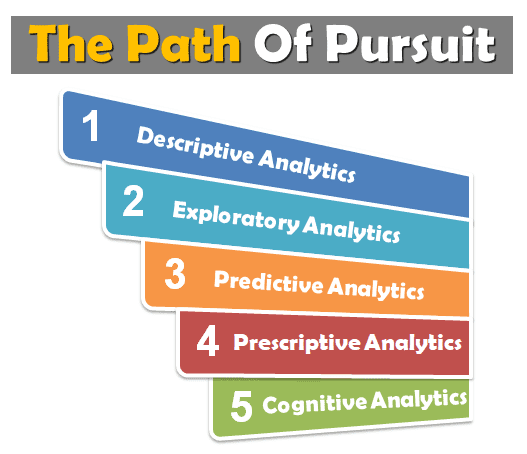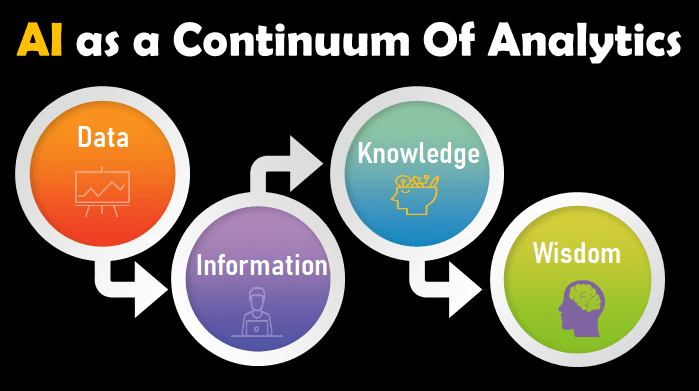AI is a new buzzword but there has been a lot of talk around analytics and prospects over a decade. Here we present a perspective that AI is a continuum of Analytics
Let us see how…
Different approaches in Data Science and analytics have been originated in the field of statistics.
AI has emerged on the other hand out of computer science as a practice and science of studying “intelligent agents”.
The way is to treat AI as extending conventional analytics with a new dimension, namely cognitive analytics, which is an extension of existing analytics forms. Conventional analytics stop at prescriptive analytics, based on statistical techniques. AI enables us to have cognitive capabilities in analytics – where human intelligence is mimicked.

Conventional analytics focus on information (BI or business intelligence) level and extend it to the extraction of patterns and predictions as in conventional predictive analytics. But In extending this to systems displaying wisdom, we enter the realm of AI. AI provides autonomy in the form of wisdom to take automatic decisions based on inferences from raw data. So AI can be the enabler to create systems capable of wisdom and extends conventional data science.

AI and Analytics can be seen therefore as a continuum rather than separate. It also pushes for a strong need for AI scientists, Data Scientists work in interdisciplinary business to educate and deliver solutions in AI and analytics to customers.
Closing thoughts:
AI is a continuous extension of analytics endowing wisdom and autonomy to applications wherein analytics stops at a level where a human makes use of the predictive and another kind of analytics to make a decision. However, the root and core algorithms serving these levels are based on similar grounded algorithms like those of machine learning based classification, regression or clustering. Only AI is more powerful on the unstructured data via its vision and NLP algorithms.
Hope this serves as a open call for a unified approach to analytics and AI.
